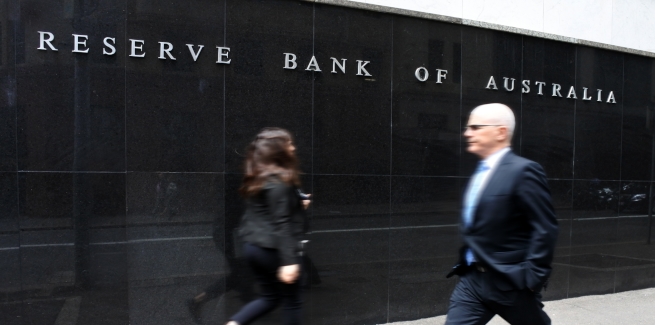The Reserve Bank of Australia (RBA) has decided to maintain the cash rate at its record-low level of 0.1 per cent, in line with its prior expectations.
The central bank’s board also decided to end its bond-buying program, with the final purchases to take place on 10 February.
In his statement on the monetary policy decision, RBA governor Philip Lowe explained the omicron outbreak has affected the economy, but it “has not derailed” its recovery.
He also stated that ceasing bond purchases “does not imply a near-term increase in interest rates” and that the “board is prepared to be patient as it monitors how the various factors affecting inflation in Australia evolve”.
“As the board has stated previously, it will not increase the cash rate until actual inflation is sustainably within the 2 to 3 per cent target range,” the governor stated.
“While inflation has picked up, it is too early to conclude that it is sustainably within the target band. There are uncertainties about how persistent the pick-up in inflation will be as supply-side problems are resolved.”
The last rate movement took place in November 2020, when the RBA slashed it from 0.25 per cent and began broad quantitative easing.
Previously, the central bank had insisted it would be unlikely to raise the rate until its previously set forecast of 2024, as inflation wasn’t expected to be “sustainably” within its 2 to 3 per cent target range. It had forecast underlying inflation would hit 2.5 per cent at the end of 2023.
However, inflation crept up at a faster-than-expected pace over the September and December quarters, sparking speculation of a rate rise happening as soon as this year.
Trimmed mean underlying annual inflation (the RBA’s preferred measure, which excludes extreme price rises and falls), reached 2.6 per cent in the December quarter, up from 2.1 per cent in the September quarter. The metric was at its highest since 2014.
But, as outlined in Dr Lowe’s Tuesday (1 February) statement, the Reserve Bank has shifted its projections for underlying inflation, with it expected to climb further in coming quarters, to around 3.25 per cent, before declining to 2.75 per cent over 2023.
The Reserve Bank has bet global supply-chain issues will resolve and consumption patterns will normalise by next year.
“Inflation has picked up more quickly than the RBA had expected, but remains lower in many other countries,” Dr Lowe wrote in his monetary policy statement.
“One source of uncertainty is the persistence of the disruptions to supply chains and distribution networks and their ongoing effects on prices. It is also uncertain how consumption patterns will evolve and how this will affect the balance of supply and demand, and hence prices.”
The RBA had set its target range for inflation, as well as a minimum threshold of 3 per cent for wages growth, before it would raise rates.
But in recent weeks, Westpac has predicted conditions will be ripe for a rate rise in August, beginning with a 15 basis point increase, before a further 25 basis point incline in October.
ANZ economists meanwhile have tipped the RBA will start lifting the rate in September.
Finsure chief executive John Kolenda has predicted the impacts of omicron, supply-chain issues and labour shortages will create a “perfect storm” for a rate rise mid-2022.
“The increased competition for skilled workers is also contributing to greater inflationary pressures,” Mr Kolenda explained.
“These issues will be around until such time as we see a dramatic increase in migration and supplies getting back to normal to support industries affected by those issues.”
But the RBA is unlikely to raise rates by too much, preferring to gauge consumer sentiment in response to slight adjustments, he added.
“It’s been more than 11 years since the RBA lifted rates and many mortgage holders are unaccustomed to rate increases,” Mr Kolenda said.
“History has shown us that as soon as the RBA starts to increase rates we see an immediate impact on consumers as they become more cautious, which leads to a slow down across the economy.
“It is likely that the RBA will increase rates a few times from record lows before we see that impacting the general consumer spending habits.”
Lenders have been raising their mortgage rates in anticipation of the RBA’s movements, Paul Ryan, economist for PropTrack commented.
“Many are picking that [cash rate increase] to be later this year, much sooner than the RBA has previously indicated,” he said.
“Labour market and inflation outcomes have outperformed the RBA’s expectations, which have increased the likelihood of cash rate increases this year.”
Mortgage Choice and Smartline chief executive Susan Mitchell reported fixed home loan rates had continued rising while variable product rates remained at near-record lows.
“These changes are seeing borrower demand for variable rate loans rise, with Mortgage Choice home loan approval data showing that almost 70 per cent of borrowers chose a variable rate for part or all of their loan in January 2022 – 3.1 per cent higher than January 2021,” Ms Mitchell said.
“Borrowers can expect stories about rising rates to dominate the media landscape in coming months, which makes now a good time to start having conversations with their broker about how to put their best foot forward for future rate rises. It's better to prepare early to help avoid rate-shock down the track.”
[Related: ‘Creative financing’ needed for home ownership: Stephen Jones MP]
 ;
;
